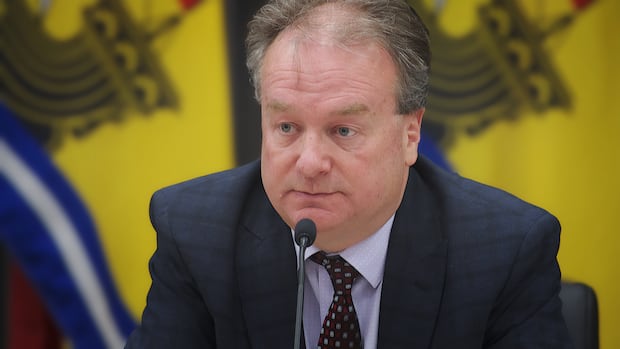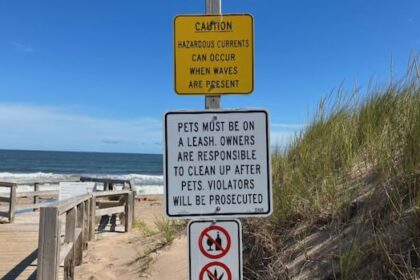New Brunswick·NewTuesday’s throne speech promised that changes following the government’s overhaul of the property tax system will be in place for the 2027 taxation year, but the interim Progressive Conservative leader is questioning why the pace of change has slowed since his party left government. Local governments will see a $63M increase in provincial funding in 2026Silas Brown · CBC News · Posted: Oct 22, 2025 5:00 PM EDT | Last Updated: 1 hour agoLocal Government Minister Aaron Kennedy says funding for municipalities will rise this year, which should offset the freeze to 2026 property assessments. (Chad Ingraham / CBC)New Brunswick municipalities will have to wait until 2027 to see new revenue streams, a year later than the deadline promised by the previous provincial government. Tuesday’s throne speech promised that changes following the government’s overhaul of the property tax system will be in place for the 2027 taxation year. The interim Progressive Conservative leader is questioning why the pace of change has slowed since his party left government. “When we left, things were well underway,” said Glen Savoie, who served as minister of local government before last fall’s election. “The department clearly had its mandate laid out to continue to work with municipalities to make them part of the fiscal reform process.”Glen Savoie, the former local government minister, says the 2026 timeline was on track as the province headed into the election campaign last year. (Tara King-Stewart/CBC)According to Aaron Kennedy, the current local government minister, those discussions did continue and resulted in a $63 million boost to provincial funding for municipalities, including a $45 million capital renewal fund. But when it comes to overhauling the property tax and assessment system, he said, it’s better to do it right than do it fast. “Everything is really on the table as we have these discussions and how we’re going to go forward,” Kennedy said.“Primarily one of my top focuses on this is to ensure that the property assessment system makes sense for New Brunswickers, that they can understand it. I don’t think they do now.”As part of the government’s municipal reform process set out in a 2021 white paper, a second phase of fiscal reform was slated to be in place for the 2025 taxation year, with changes to ensure more fiscal stability for local governments. The paper listed a possible overhaul of the property tax system, diverting some cannabis revenue and sharing the proceeds of traffic fines. WATCH | ‘This is a government that confuses activity with achievement,’ opposition says:Delay in property tax overhaul could push cash-strapped municipalities over the edgeThe Liberal government says changes to New Brunswick’s property tax system will be in place for the 2027 taxation year, a year later than when the previous government said they would be. In 2023, the Blaine Higgs government implemented its first phase of fiscal reforms, giving municipalities more flexibility in setting different tax rates for residential and industrial properties. It promised a broader overhaul for 2026. But steps to diversify revenues beyond the first phase have stalled, and as the costs of running local governments have continued to rise, municipal leaders have been calling for action. A 2024 report from Mount Allison University economist Craig Brett estimated that the province’s municipalities are facing an annual funding shortfall of about $200 million. Green Leader David Coon says that municipalities are further hampered by the province’s decision to freeze 2026 property assessments.“I think the government was just grasping at something to make it look like they’re trying to address affordability challenges that so many New Brunswick are facing and that was something they landed on that was easy to do for them,” he said of the assessment freeze. “The consequences be damned for municipalities,” he said of the assessment freeze.“Just look at the commitment to diversify the revenue sources for municipalities as part of the fiscal framework has been kicked down the road.”Green Leader David Coon says delays in decision-making are becoming a pattern of the current government. (Tara King-Stewart/CBC)According to the Union of Municipalities of New Brunswick, the 2026 freeze means 82 per cent of municipalities will see tax base growth below 3.1 per cent, which is the Local Government Cost Index. That measure includes wages, growth, the consumer price index and non-residential building costs. Dan Murphy, the executive director of the organization, said he understands that a broader overhaul of property taxation takes time, but local governments need to see their growing list of pressures addressed. “We’re just looking to try to make sure that our communities have the resources to deal with the complexity they’re seeing,” he said. “I think anybody living in a municipality would see that the changes and the challenges that communities are facing now aren’t the same as they were 10 years ago.“We’re not talking about people paying more. We’re just looking for a different sharing of revenue agreement with the provincial government.”Kennedy said that the 2026 assessment freeze was necessary as an affordability measure for New Brunswickers and to give the government time to look at a large-scale overhaul of how the system works and hopes that local governments can avoid raising their tax rates this year.“We believe that municipalities are going to make the decisions that they need to make. We’ll see where their tax rates fall in the next few weeks as their budgets are finalized for 2026,” he said. “We think this is a tangible affordability measure for New Brunswickers that municipalities are going to try and to ensure that they make the decisions that New Brunswick or see that benefit.”ABOUT THE AUTHORSilas Brown is a Fredericton-based video journalist. You can reach him at silas.brown@cbc.ca.
New revenue sources for municipalities will have to wait until 2027











